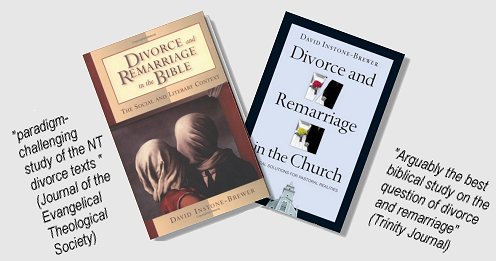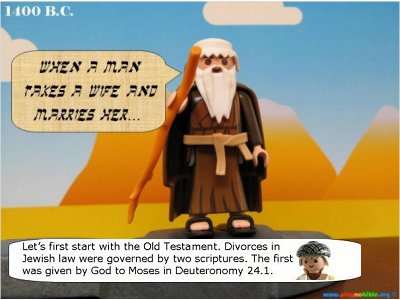

Divorce and Remarriage
in the Bible and in the Church

- The Bible's message for those suffering within marriage is both realistic and loving
- Marriage should be lifelong, but broken marriage vows can be grounds for divorce
- Biblical grounds for divorce include adultery, abuse and abandonment
- Jesus urged forgiveness but allowed divorce for repeated unrepentant breaking of marriage vows
- Only the victim, not the perpetrator of such sins, should decide when or whether to divorce
- Anyone who divorces on biblical grounds or who is divorced against
their will can remarry.
This book interprets the words of Jesus and Paul through the eyes of first century readers who knew about the ‘Any Cause’ divorce which Jesus was asked about ("Is it lawful to divorce for ‘Any Cause’" – Mt.19.3). Christians in following generations forgot about the ‘Any Cause’ divorce and misunderstood Jesus.
The 'Any Cause' divorce was invented by some Pharisees who divided up the phrase "a cause of indecency" (Dt.24.1) into two grounds for divorce: "indecency" (porneia which they interpreted as ‘Adultery’) and "a cause" (ie ‘Any Cause’). Jesus said the phrase could not be split up and that it meant "nothing except porneia". Although almost everyone was using this new type of divorce, Jesus told them that it was invalid, so remarriage was adulterous because they were still married.
| The Old Testament allowed divorce for the breaking of marriage vows, including neglect and abuse, based on Exod.21.10f. Jesus was not asked about these biblical grounds for divorce, though Paul alluded to them in 1Cor.7 as the basis of marriage obligations. This book argues that God never repealed these biblical grounds for divorce based on broken marriage vows. They were exemplified by Christ (according to Eph.5.28f) and they became the basis of Christian marriage vows (love, honour, and keep). | |


